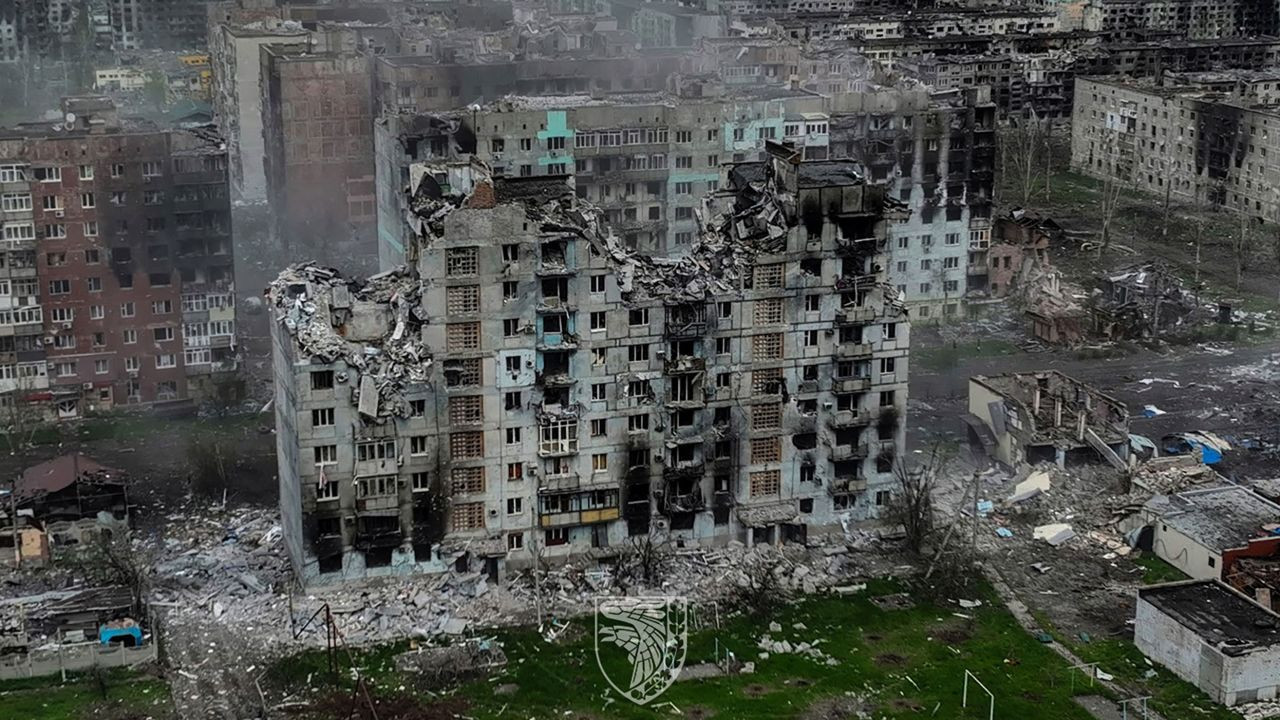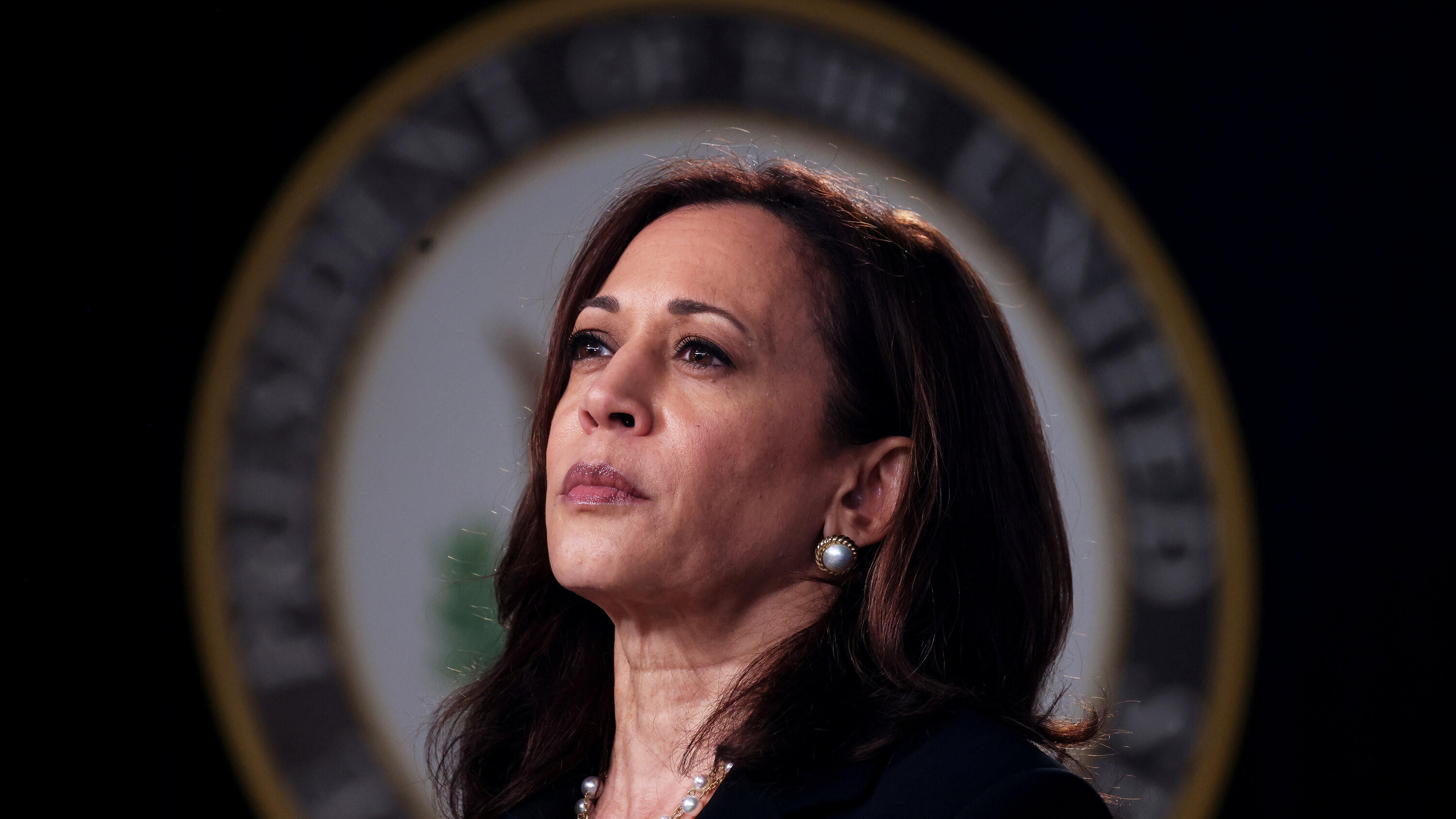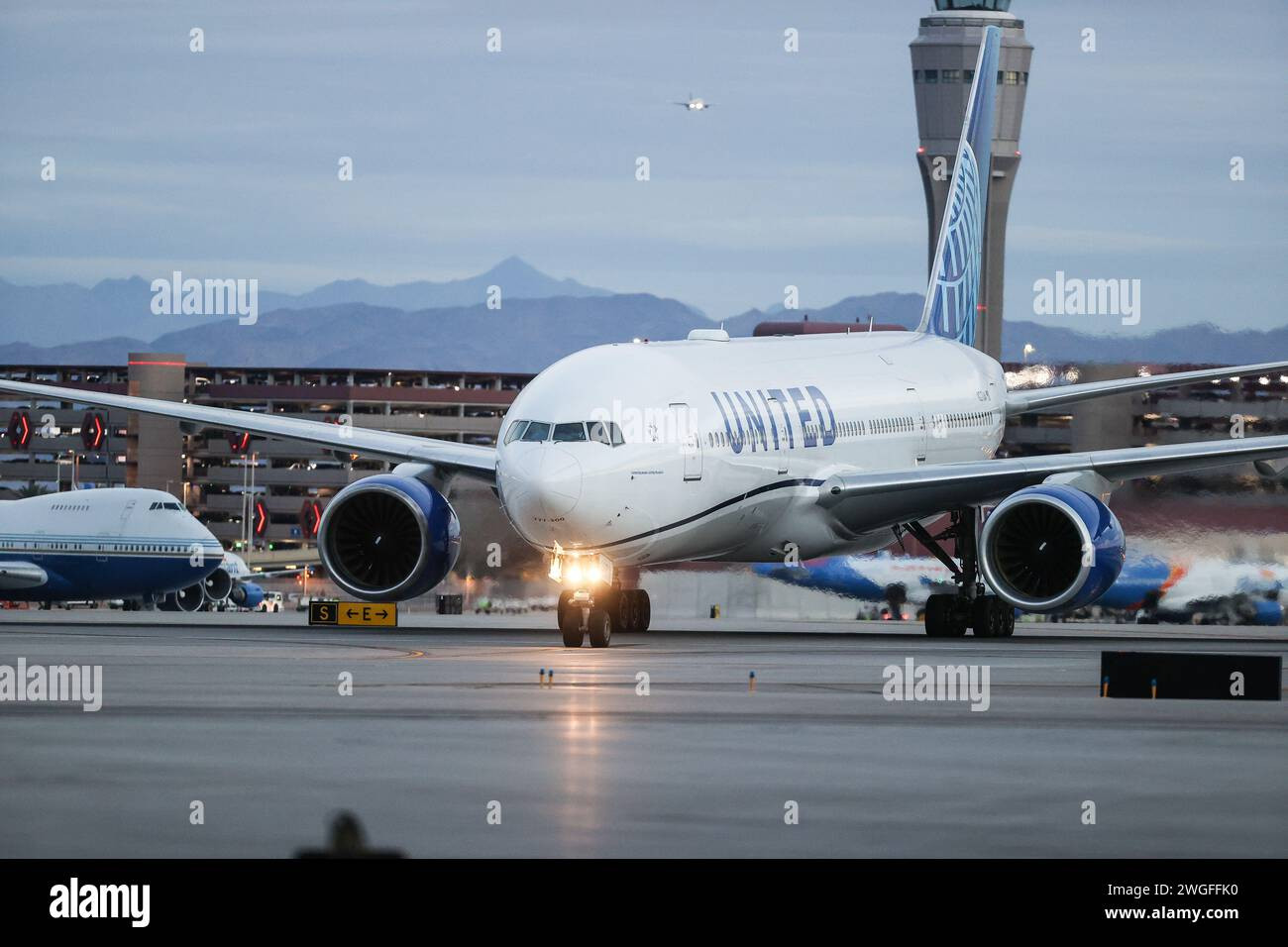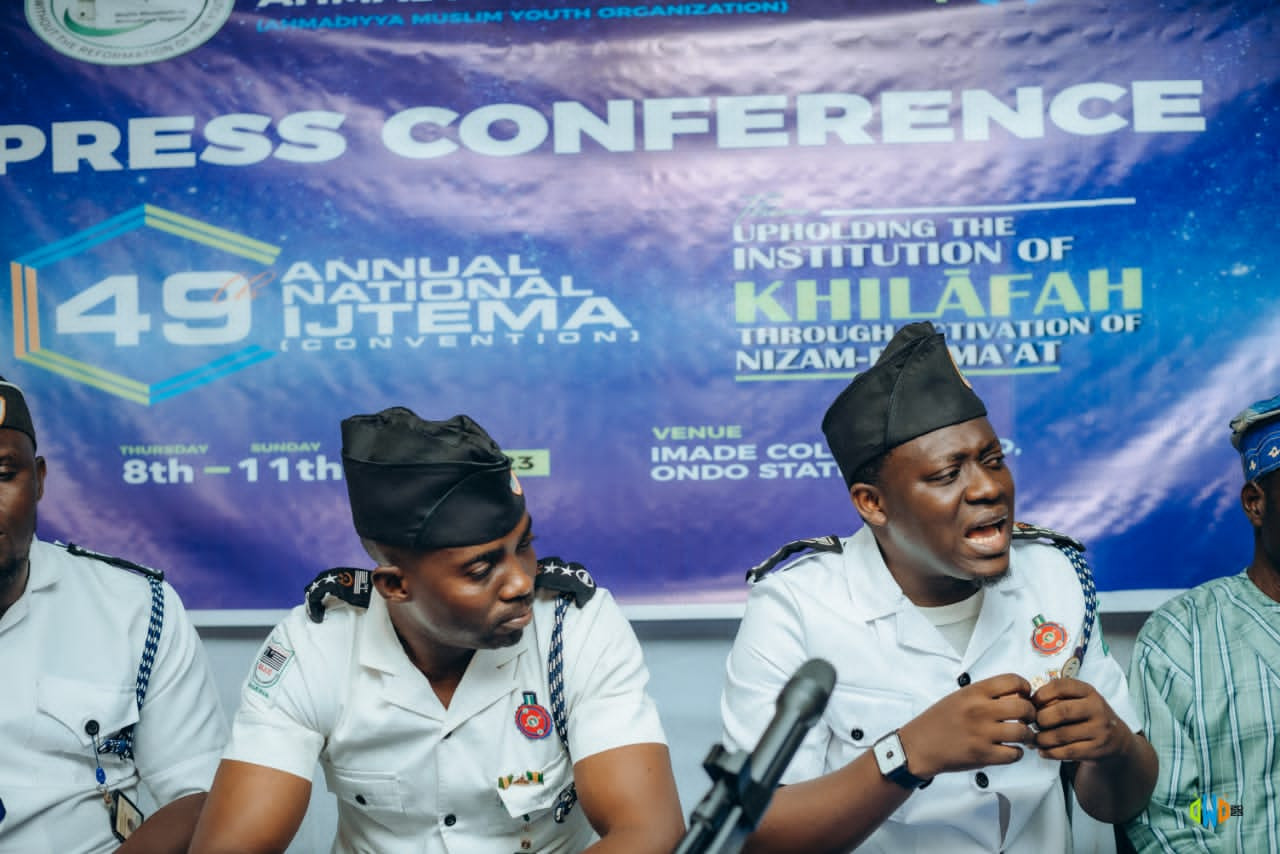Russia’s full-scale invasion of Ukraine was conceived in the Kremlin as a short, sharp military operation. The expectation was that it would take a matter of days, a few weeks maximum, for Russia to establish control over its neighbour. That was nearly two-and-a-half years ago. The war in Ukraine rages on. It has not gone at all as Moscow had intended.
But here’s the thing. Over the last 29 months, so often we’ve heard senior Russian officials claiming that the operation is going “according to plan.” President Vladimir Putin last said that in May, despite everything that had happened in the preceding two years: the heavy Russian casualties on the battlefield, the destruction of multiple Russian warships in the Black Sea, drone attacks deep inside Russia (even on the Kremlin itself), the shelling of Russian towns and villages near the Ukrainian border, the mutiny by Wagner mercenary fighters who had marched on Moscow.
Now there is a new addition to the list: this week’s cross-border Ukrainian assault on Russia’s Kursk region.
First, a disclaimer: it’s difficult to know exactly what is happening right now in the Sudzha district of Kursk region. It is unclear how many Ukrainian troops are there, how much territory they have seized and what their final objective may be. Today’s edition of the Russian broadsheet Nezavisimaya Gazeta declared: “Events on the Kursk front are shrouded in the notorious fog of war.”
But even in fog, some things are clear. It’s evident that what is unfolding in Kursk region is further evidence that Russia’s war in Ukraine has not gone “according to plan”. Events appear to have taken Russia’s political and military leadership completely by surprise.
Don’t expect Moscow to admit that. More likely, Russian officials will use the Ukrainian assault to try to rally the Russian public around the government and bolster the official Kremlin narrative that (a) in this conflict Russia is not the aggressor, and (b) Russia is a besieged fortress surrounded by enemies who are plotting to invade and destroy it.
In reality it was Russia that launched a full-scale invasion of its neighbour. There’s clearly a big difference in language. When Russia poured its troops across the border into Ukraine in February 2022, the Kremlin called this a “special military operation” and claimed that Russia was “liberating” towns and villages. Moscow has described Ukrainian troops pushing into Russia as “a terrorist attack” and “a provocation.”
The assault by Ukrainian forces on Kursk region and the fierce fighting there are a sign that hostilities are coming closer to home. But will that turn Russian public opinion against the war?
Not necessarily. Last year I visited Belgorod, a Russian region which, like Kursk, borders Ukraine. It was being shelled from across the border. Everyone I met told me that nothing like this had happened before Russia’s full-scale invasion of Ukraine: before February 2022 it was all peace and quiet in Belgorod region. But instead of concluding that the “special military operation” had been a mistake, most people I spoke to called for Russia to step up its military action and push deeper into Ukrainian territory.
Former Russian President Dmitry Medvedev is calling for exactly that. In a social media post today he wrote: “We can and we should take more land of the Ukraine that still exists. [We should go to] Odesa, to Kharkiv, to Dnipro, Mykolaiv. To Kyiv and onwards.”
But Dmitry Medvedev doesn’t get to call the shots. Vladimir Putin does. We wait to see how he responds to what have been a dramatic few days in southern Russia.
On Wednesday, acting regional Governor Alexey Smirnov said the “operational situation” in the border area of Kursk remained “complicated,” a day after Russia said Ukrainian units launched an incursion into the region. “In order to eliminate the consequences of enemy forces entering the region, I have decided to declare a state of emergency,” Smirnov said in a Google-translated update on Telegram, adding that drone and missile attacks had continued overnight.
On Thursday, acting Deputy Governor Andrei Belostotsky said around 3,000 people were evacuated from shelled areas of the region, with four people killed, according comments reported by Russian state news agency Tass. He also said Ukrainian units “had not advanced a single meter,” in comments published by Russian state news agency Ria Novosti. CNBC was not able to verify the claims.
Russia's defense ministry said Tuesday that 300 Ukrainian troops had crossed over the border with tanks and armored vehicles, entering the country near the town of Sudzha, around 400 miles southwest of Moscow. Kursk lies across the border from Ukraine's northeastern Sumy region.
Russian President Vladimir Putin on Wednesday accused Ukraine of carrying out “yet another large-scale provocation” at the Russian border, amid ongoing fighting between Ukrainian units and Russian forces sent to defend the area.
Russia's defense ministry claimed Wednesday that its forces were “destroying armed formations” using air and missile strikes, along with artillery.
Valery Gerasimov, the chief of Russia's general staff, later told Putin that Russian forces had halted an offensive undertaken by 1,000 Ukrainian soldiers — a troop estimate far higher than the original figure supplied by the country's defense ministry. “The enemy's advance deep into territory in the Kursk direction was stopped by the actions of the units covering the state border together with border guards and reinforcement units, with air strikes, missile and artillery fire,” Gerasimov said in televised comments reported by Reuters.
The Ukrainian authorities have not made any public comment on the incursion. CNBC has requested further information from the Ukrainian defense ministry.
Ukrainian presidential adviser Mykhailo Podolyak on Thursday suggested that Russia's aggression had prompted the latest operation. “The root cause of any escalation, shelling, military actions, forced evacuations, and destruction of normal life forms, including within (Russia's) own territories like Kursk and Belgorod regions, is solely Russia's unequivocal aggression,” Podolyak posted on social media platform X.
U.S. State Department Spokesperson Matthew Miller told reporters on Wednesday that the U.S. had not been forewarned of a Ukrainian incursion, but did not rule out that an offensive took place. “We did not [know in advance about the Kursk operation]. But it's not unusual for the Ukrainians not to notify us of their exact tactics before they execute them. It's a war that they're conducting. We provide them with equipment. We provide them with advice. But when it comes to the kind of day by day tactics that they carry out, the day by day strikes that they take ... it's appropriate for them to make those decisions,” he said in a press briefing.
Miller said the U.S. were currently “in communication with the Ukrainians on this particular operation” but that it was inappropriate to comment on “what kind of operations they're conducting and what their goals are. That's appropriate that they speak to that publicly, not us.”
The U.S. State Department Spokesperson further said Putin's description of the incursion as a “provocation” was “a little bit rich ... given Russia violated Ukraine's territorial integrity and sovereignty” when it has illegally occupied Ukrainian territory since 2014, beginning with the annexation of Crimea, ahead of the largescale invasion of Feb.2022.
Ukraine's strategy and reasons for carrying out a border raid remain unclear, although some defense analysts have commented that the operation may be an attempt to force Russia to re-deploy forces away from eastern Ukraine, where a Russian summer offensive has been gaining ground.
Analysts at the Institute for the Study of War estimated Wednesday that Ukrainian forces had made confirmed advances of up to 10 kilometers — or around 6 miles — into the Kursk region “amid continued mechanized offensive operations on Russian territory.” “The current confirmed extent and location of Ukrainian advances in Kursk Oblast [region] indicate that Ukrainian forces have penetrated at least two Russian defensive lines and a stronghold,” the ISW said in analysis.
The ISW said “geolocated footage published on August 6 and 7 shows that Ukrainian armored vehicles have advanced to positions along the 38K-030 route about 10 kilometers from the international border.”
The ISW said that the Kremlin's response to Ukrainian offensive activities in Kursk “has so far been contradictory, as Russian officials are attempting to balance presenting the effort as a notable Ukrainian escalation with avoiding overstating its potential implications and risking domestic discontent.” “The Kremlin risks, however, discrediting itself among certain communities by seemingly dismissing the significance of the attack by framing it only as a ‘provocation.’”
The ISW noted that a number of Russian military bloggers, often critical of the war and Russia's tactics and strategy, have heavily blasted Russia's military command for not detecting preparations for Ukrainian offensive operations into Kursk or preventing the initiative.
The deputy chairman of Russia's Security Council and well-known hawk Dmitry Medvedev called on Russian forces to crush the Ukrainian units in Kursk. “We need to learn a serious lesson from what happened and do what Chief of the General Staff Valery Gerasimov pledged to the supreme commander-in-chief to do, that is, resolutely defeat and crush the enemy,” he stated on Telegram, according to a Google translation.
The Implications of a New Front
The Ukrainian incursion into Russia's Kursk region marks a significant escalation in the war. It raises several questions about the potential consequences and the future of the conflict.
The Potential for Escalation: The incursion into Russian territory could be seen as a provocation by Moscow, potentially leading to a more aggressive response from Russia. It is difficult to predict how far this could escalate, but the possibility of a wider conflict cannot be ruled out.
Strategic Implications: The incursion could also have strategic implications. Ukraine may be seeking to distract Russian forces or disrupt their supply lines. By forcing Russia to respond, Ukraine may be hoping to gain an advantage on other battlefronts.
The War's Impact on Russia: The incursion has brought the war closer to home for Russia. The potential for further incursions and the growing possibility of Russian casualties on its own soil may begin to erode public support for the war. This could have significant political ramifications for President Putin.
What Next?
The situation in Kursk remains fluid, and the full implications of the Ukrainian incursion are yet to be understood. The events of the past few days have demonstrated the war's ability to take unexpected turns. It is clear, however, that the conflict has entered a new, more dangerous phase, and the potential for escalation remains a significant concern.

















